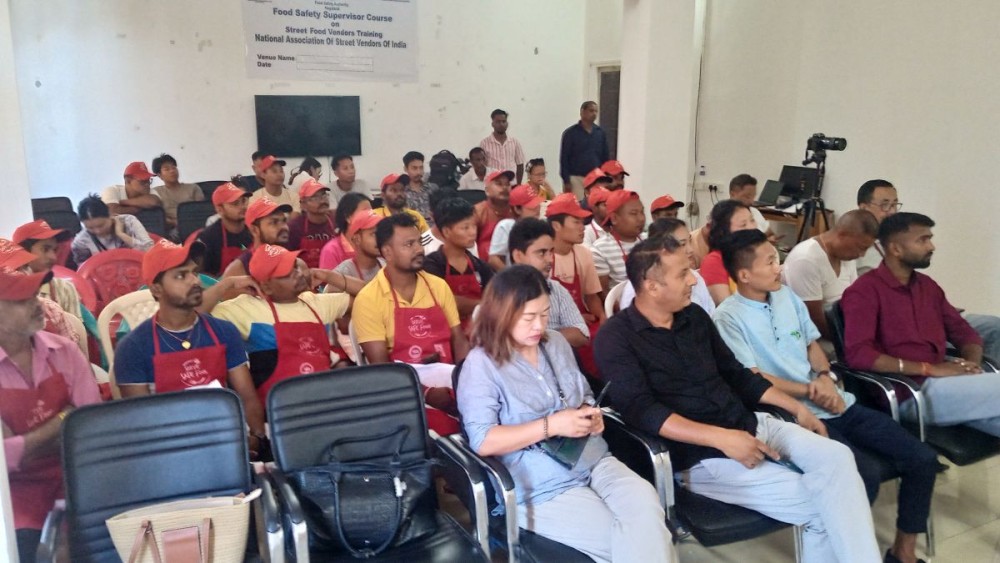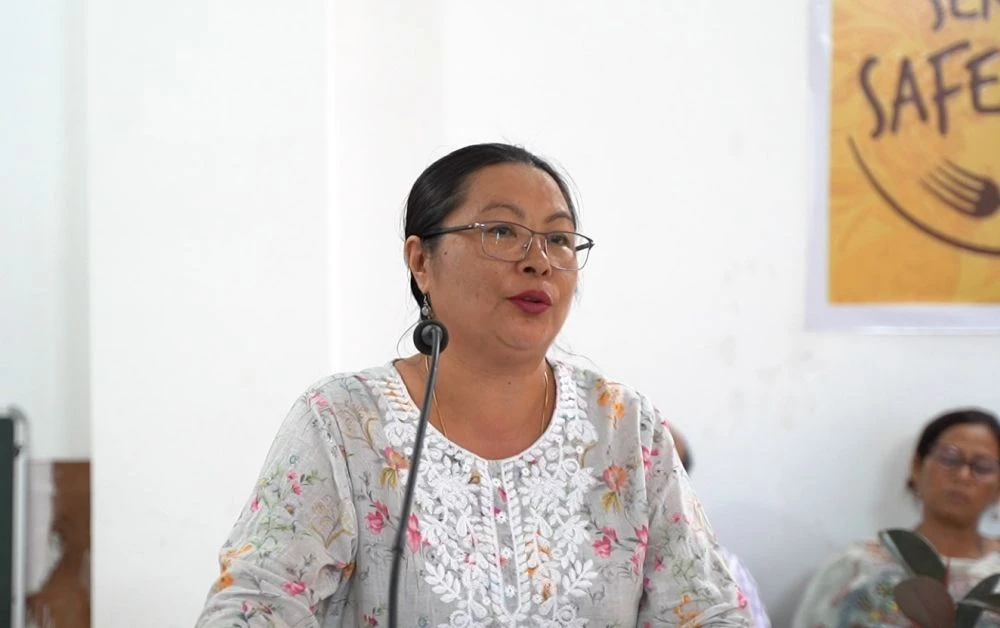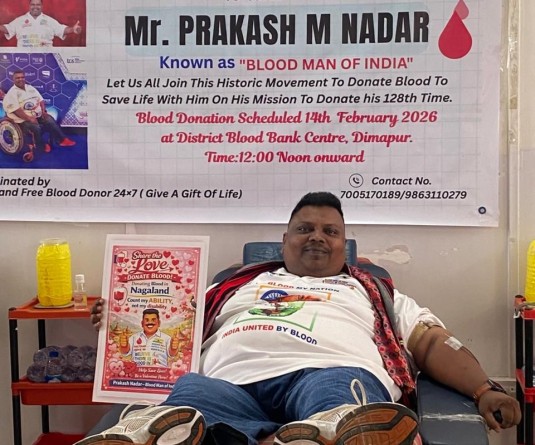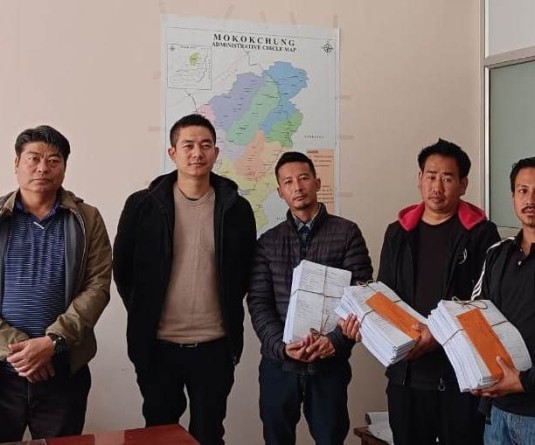Street food vendors at the Project Serve Safe Food training programme organised by the NASVI in Dimapur on July 15. (Inset) Sangeeta Singh, Head of Street Food Programme, NASVI.

Safer street food enhances image and business
Morung Express News
Dimapur | July 15
According to Sangeeta Singh, Head of Street Food Programme, National Association of Street Vendors of India (NASVI), there has been a drastic shift in consumer behaviour in India vis-à-vis food safety post the Covid-19 pandemic. She said that an increasing hygiene consciousness among consumers implies street food business operators upping the hygiene ante, if they want to keep their business afloat. If not, more and more consumers would prefer to eat at restaurants and malls, which consumers believe offer better hygiene practices.

As food handlers, and keeping intact their livelihoods, she said that it is essential for street food vendors to be aware of consumer rights and preferences. “We have to be aware of consumer rights,” Singh said at a Project Serve Safe Food training programme organised by the NASVI for street food vendors in Dimapur on July 15.
While stressing on personal hygiene and “being a little more responsible,” she said that if a consumer falls ill after consuming street food, she said that it would only impact the business of the operator. “Please be responsible otherwise, you will become obsolete. Consumers would choose to go to big restaurants and malls,” she said.
In the age of “branding,” she said that inculcating hygiene habits will not only project a fine business image, but also help prevent food borne illnesses.

She insisted on appropriate clothing, which should be changed frequently, and the strengthening of Town Vending Committees— a body established under the Street Vendors Act to regulate and protect the livelihoods of street vendors.
The first of a series of two, the day’s workshop was conducted at the Chief Medical Officer’s office in Dimapur with support from the Food Safety Authority, Nagaland; Food Safety Training and Certification (FoSTaC), and Food Safety and Standards Authority of India (FSSAI). Project Serve Safe Food, in operation since 2016 in India, is a training programme supported by Nestle India Limited.

Dr Tinojongshi Ao, Deputy Commissioner, Dimapur, was a special guest at the inaugural session. From the Health & Family Welfare Department, there were Dr Rongsennungla, District Programme Officer, Reproductive and Child Health and Universal Immunisation Programme; and Pelerieno, Designated Officer, Food Safety, Dimapur.
Dr Rongsennungla maintained that food safety is directly linked to health and productivity. She emphasised the importance of segregating waste at its source due to the large amount generated by the food industry and stressed that all food handlers must be vaccinated before starting any food business.
Pelerieno, the Designated Officer for Food Safety in Dimapur, added that food safety also involves wearing appropriate clothing and proper licensing from the FSSAI. She advised vendors to always use fresh ingredients and potable water to avoid foodborne illnesses and to use food-grade packaging instead of newspapers, as the ink can be carcinogenic.
She asserted that food vendors must pass and possess medical fitness certified by a medical doctor, ensuring they do not have any transmissible diseases.

A media handout from the organisers informed that ‘Project Serve Safe Food’ aims to educate street food vendors on food safety and hygiene practices to provide healthier food for consumers and enhance the vendors’ livelihoods. The training curriculum covers personal and cart hygiene, food handling, pest control, and waste management, with recent additions on COVID-19 safety measures and digital payments.
Upon successful completion of the training, vendors receive a FoSTaC certificate from the FSSAI and a hygiene kit. To date, the project has trained 92,800 street food vendors across 26 states and union territories. It claimed that it has resulted in encouraging behavioural changes. The programme plans to extend its reach by training 200 street food vendors in Kohima and Dimapur, Nagaland, with the support of the state's Food Safety Authority and local municipal councils.
The second of the training series in Nagaland is scheduled on July 16 in Kohima.






